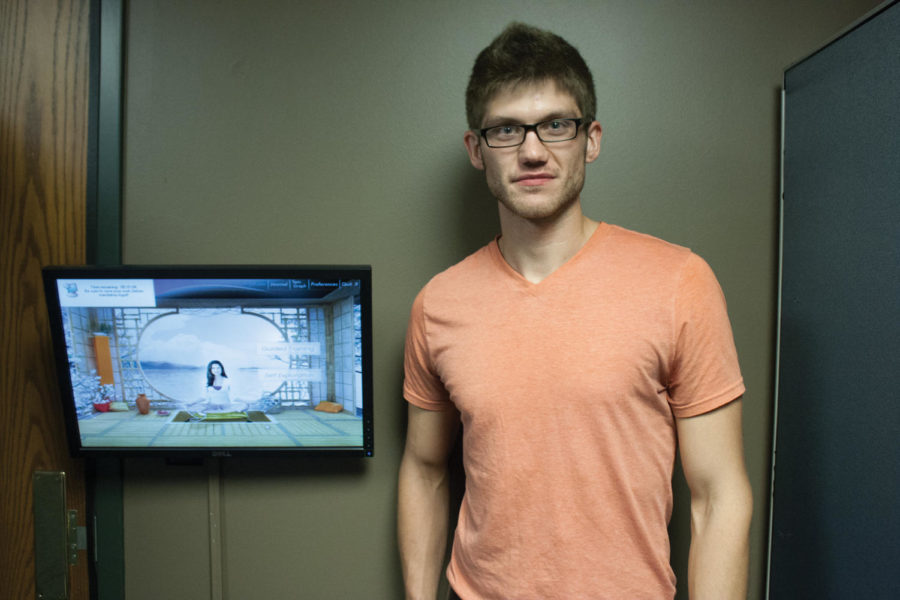Biofeedback Program connects mind and body
September 19, 2012
The Student Counseling Center has many different programs to help students from feeling stressed and at one with their bodies and minds.
Their Biofeedback Program was created four years ago by Todd Pietruszka, student counseling service staff psychologist. Last year, the program doubled the number of students who participated.
“Biofeedback” means acknowledging your physical responses and taking action to those responses. Its purpose is to ease a student’s ability to react to stressful, challenging, frustrating and problematic situations.
“Once a student learns to reduce their anxiety using skills learned through biofeedback training, their performance increases significantly — often resulting in dramatic improvements in academic performance,” said psychologist Jeffrey Ellen, coordinator of the Biofeedback Program and Mind/Body Center. “That’s where biofeedback training comes in; biofeedback teaches students to notice the early signs of anxiety before that same anxiety negatively affects the functions of the brain that are important for peak performance.”
Biofeedback helps students understand that calming their body and mind can alter their reactions to problems. It relates to different life situations as well. For instance, it can help someone feel calm during a stressful test.
“Often times, students report walking into a test that they have spent hours and hours studying for only to have test anxiety get in the way of their performance once they arrive in the classroom,” Ellen said. “These students often earn C or D grades on a test which, had they known how to manage their test anxiety effectively, they normally might have earned an A or B.”
The Biofeedback Program can help students improve their study habits and ability to work on homework more efficiently. The purpose of the program is to make students feel confident, aware of their actions and enhance their ability to understand and control their actions.
“It can generally make you feel safe and comfortable with one another,” said Jeritt Tucker, Biofeedback Program graduate assistant. “[It] helps you have a happy mind and a healthy body.”
The Biofeedback Program can help students in a variety of situations. Different areas students can apply what they have learned at the Biofeedback Program include stress, academic life, social life, physical pain, attention difficulties, depressive feelings and self-critical thinking.
“It really does help to highlight the mind and body connection, because as college students, we are told to be in our minds so much that we forget we have a body,” Tucker said.
The Biofeedback Program can help students understand the mind and body connection and how students can use that connection to their advantage.
“During the past year of operation, the program saw 1,026 appointments and provided services to a total of 429 students. This is an almost three-fold (274 perfect) increase in service utilization over the prior academic year,” Tucker said. “Given our findings that biofeedback leads to large, statistically significant reductions in symptom distress, it is our belief that the increase in demand represents a major step forward in the mental, physical and emotional well-being of ISU students.”
During the orientation session, some students were able to get hands-on experience with the Biofeedback program. Some students attribute their use of the Biofeedback Program as key to their academic success.
“I really want to focus on my senior year, and I’ve been really stressed out. Everything building up, and I just felt like I need to get some guidance. My professor brought me to realize that there is a program that’s out there that can help me,” said Sarah Bishop, senior in advertising and first-time Biofeedback Program client.
The Biofeedback Program is a resource that is available to all ISU students.
“Biofeedback translates to better well-being” Tucker said.







